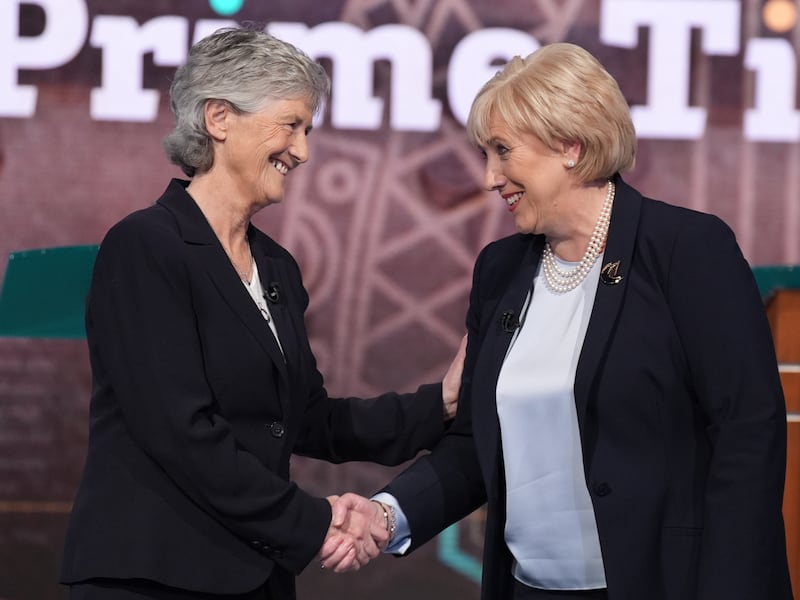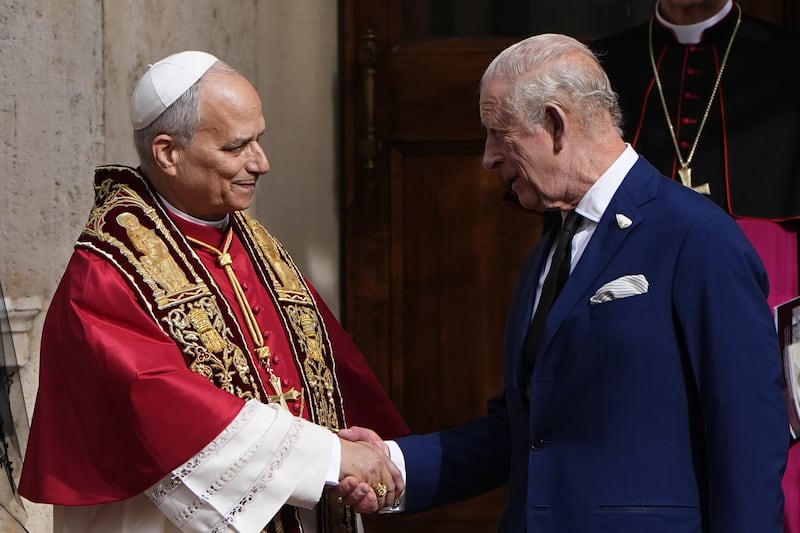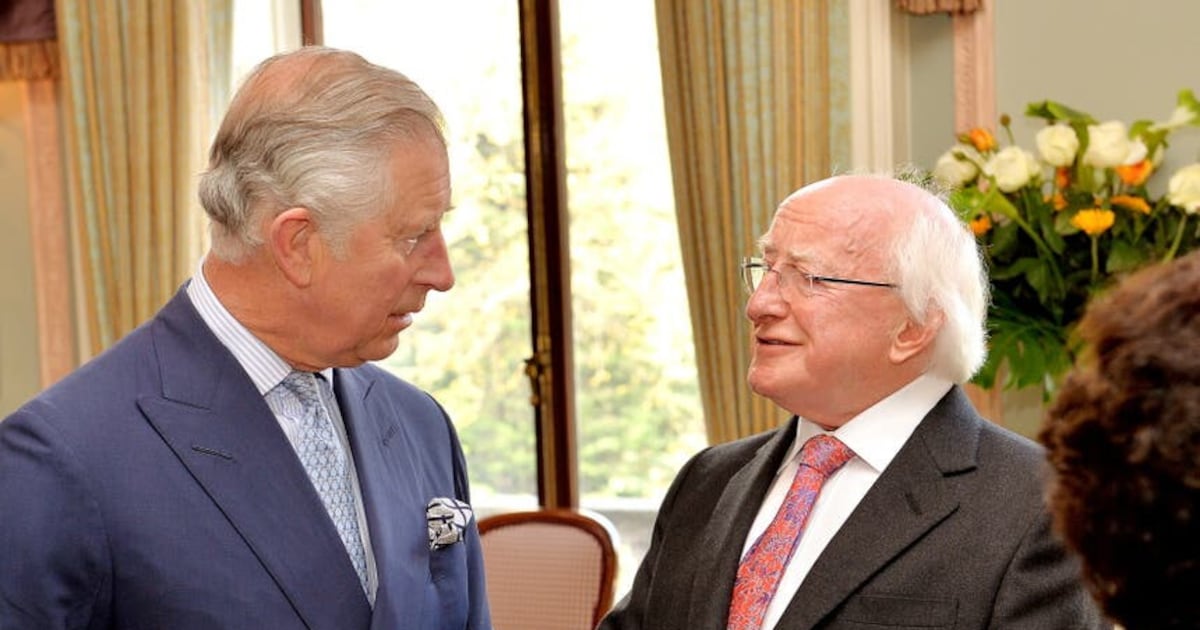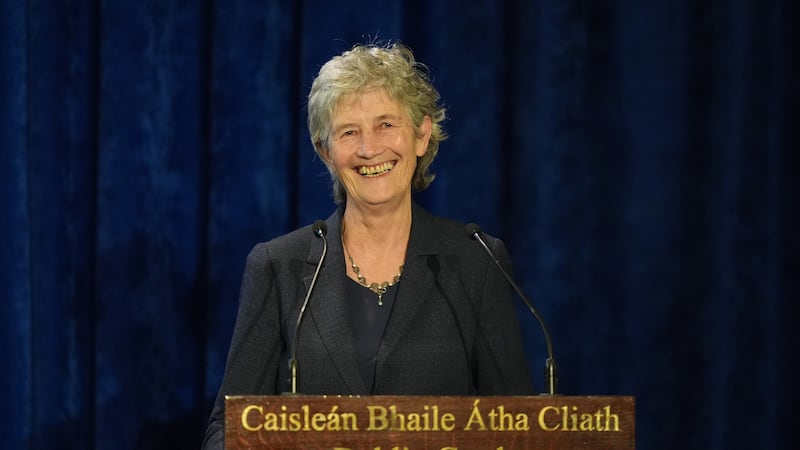The north may have become a more equal society since the 1998 Agreement, but the manner in which many issues are framed continues to betray a residual prejudice coming from a time and place when unionism’s desires, interests and outlooks were afforded priority status.
Consider the use of the terms ‘fears’ and ‘concerns’, invariably ascribed collectively to unionists when a political development is seen to go against them.
“The Independent TD’s long-standing support for Irish unity and her endorsement by Sinn Féin have raised concerns” amongst unionists, declared the BBC after announcing the election of Catherine Connolly to Áras an Uachtaráin.
Concerns?
The elevation of King Charles to the position of British monarch two years ago, Connolly’s equivalent as head of state, was not reported as an episode arousing “concerns” amongst Irish nationalists, and nor should it have been.
That is not to say people did not experience emotions at the time. Families of victims of the British Parachute Regiment, for whom Charles serves as Colonel-in-Chief, could have been entitled to experience anger, dismay or sorrow, but ‘concerns’ or ‘fears’ would not have been a rational response.
Over the years, the BBC and others have exceeded themselves in suggesting unionist fears, sensitivities, anxieties or concerns (used interchangeably) were aroused when Orange parades were re-routed from nationalist areas, bi-lingual signage erected or any time support for Irish unity is mentioned.
Since Connolly’s election, we have heard from unionist politicians that abusive comments – many sectarian – by anonymous trolls on X and other platforms directed at Heather Humphreys amounted to an insight into the dark and ominous world unionists would face in a united Ireland, where Britishness and Protestantism would not be respected.
 Independent candidate Catherine Connolly and Fine Gael candidate Heather Humphreys (Niall Carson/PA)
Independent candidate Catherine Connolly and Fine Gael candidate Heather Humphreys (Niall Carson/PA)
Yet if we are going to talk about the head of state position and how it relates to the constitutional question, we should compare how it exists within the current UK context and within an Irish context.
In Ireland, the head of state is an elected office, open to people of all persuasions and backgrounds so long as candidates are able to successfully navigate the nomination process.
That process has led to 10 presidents being elected, with two being Protestant, including the very first, Douglas Hyde.
The very fact Heather Humphreys served as a prominent government minister and was nominated by a party of government confirms how religion was by no means a significant factor in this election – none of which makes any less contemptible any sectarian commentary that may have appeared on social media or in comments raised to canvassers.
Now let’s look at the UK.
The head of state position was specifically designed to exclude a Catholic from ever holding the post.
If the serving monarch wanted to become Catholic, they would be unceremoniously dumped from office. Up until 12 years ago, an heir to the throne who even had the temerity to marry a Catholic was disqualified from being an heir.
Last month, Britain’s King Charles met with the Pope and they prayed together. That led to condemnation from the Orange Order and a prominent Free Presbyterian Minister – and son of the DUP founder – publicly calling on the King to resign.
 The Pope and the King joined in prayer in a historic moment in the Vatican (Aaron Chown/PA)
The Pope and the King joined in prayer in a historic moment in the Vatican (Aaron Chown/PA)
Now imagine the reaction if the Irish President ‘had’ to be a Catholic. We would hear regularly about how alienating that was for Protestants and unionists and how that would have to change in a united Ireland.
Yet for Catholics in the north of Ireland today, the reality that the head of state post excludes Catholics is treated by the media as a non-story, never raised as something with implications for the current sovereign status of the north.
Senior unionist politicians have somehow evaded answering the question as to whether they supported the monarch praying with a Pope – an important clarification as it would provide a means of demonstrating a desire to reach out to a Catholic community excluded by design from ever being able to hold the UK head of state position.
The fact Michelle O’Neill attended King Charles’ coronation logically should have already led to the media spotlight being on Deputy First Minister, Emma Little-Pengelly, regarding her intentions or otherwise to attend Catherine Connolly’s inauguration in a week’s time.
By any objective measure, it is the head of state post within the UK, and not Ireland, which creates a cold house and confirms a culture openly hostile and antagonistic towards one of the two communities in the contested space that is the north of Ireland.
Why that never arises as a topic for discussion says a lot about work yet to be done in order to level the playing field in our society.
If you have an opinion on the issues raised in this article and would like to submit a Letter to the Editor to be considered for publication, please click hereLetters to the Editor are invited on any subject. They should be authenticated with a full name, address and a daytime telephone number. Pen names are not allowed.


